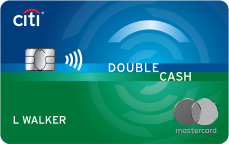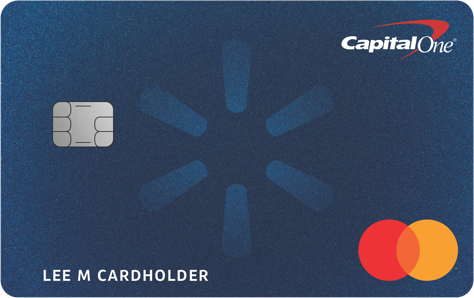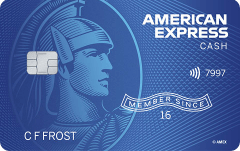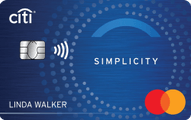- myFICO® Forums
- FICO Scoring and Other Credit Topics
- General Credit Topics
- Re: What is the obsession with HP'ing for a CLI???
- Subscribe to RSS Feed
- Mark Topic as New
- Mark Topic as Read
- Float this Topic for Current User
- Bookmark
- Subscribe
- Mute
- Printer Friendly Page
What is the obsession with HP'ing for a CLI???
Is your credit card giving you the perks you want?
Browse credit cards from a variety of issuers to see if there's a better card for you.
- « Previous
- Next »
- Mark as New
- Bookmark
- Subscribe
- Mute
- Subscribe to RSS Feed
- Permalink
- Report Inappropriate Content
Re: What is the obsession with HP'ing for a CLI???
@Brian_Earl_Spilner wrote:
@Anonymous wrote:
@MakingProgress wrote:
@Anonymous wrote:
@MakingProgress wrote:
@Anonymous wrote:
@MakingProgress wrote:
@Anonymous wrote:HP CLIs are almost invariably higher than SP CLIs. I personally don’t mind or I wouldn’t be with NFCU.
As others have said, it leaves a mark that lets other creditors know that you’re actively seeking more credit which is a risk factor they should know about. It wouldn’t surprise me to see all CLIs turn into HPs industry wide and I would support the move. If Discover did HP CLIs, we probably wouldn’t see people with high incomes getting denied or tossed $200-$500.
Income is not shown anywhere on a CR. HP or Sp doesn't make a difference. Income is self reported unless a creditor requests verification.
They can get a picture of your liquid cash based on your charges and payments.
That wasnt my point though. My point was that HP CLIs tend to be higher than SP ones.
They get the same info in either type of pull. An HP doesn't give the creditor a better picture of anything it simply puts a mark on your file that you are seeking credit.
It is possible that some, like Citi may be willing to give a higher cli if you are willing to take an HP, but the type of pull doesn't give then any additional information.
They cannot see SPs from other financial institutions which is exactly why standard procedure is to do a HP when a consumer requests credit, that’s my point.
I don't belive a creditor ever sees SPs. My understanding is the only one who sees SPs are a consumer when you pull your report from annualcreditreport.com. (someone with more knowledge please correct me if I am mistaken on that) Marks for an SP wouldn't really give insight to a creditor as lots of SPs show up that have nothing to do with requesting a CLI or new credit. Most SPs are the result of a creditor or prosective creditor pulling information for account review or marketing purposes.
That was exactly the point I was making. A HP shows without a doubt that any CLI that appeared on a consumer’s report was asked for and lets other lenders see that the customer is seeking credit actively. A SP doesn’t show up so lenders have no way of knowing if the CLI was requested or automatic by the lender.
They wouldn't be able to tell with the HP. There's no notation that it was for a CLI. For all the banks know, you applied for a new card and was denied as there isn't a new tradeline on your file. The only reason for it is to indicate that you were seeking additional credit. Period.
Current lender does an SP and sees a CLI but no HP they can’t say “hey, he asked for that” like they can if they see a CLI and a HP with no new account though so it’s still more info than without it.
- Mark as New
- Bookmark
- Subscribe
- Mute
- Subscribe to RSS Feed
- Permalink
- Report Inappropriate Content
Re: What is the obsession with HP'ing for a CLI???
@Anonymous wrote:
@Brian_Earl_Spilner wrote:
@Anonymous wrote:
@MakingProgress wrote:
@Anonymous wrote:
@MakingProgress wrote:
@Anonymous wrote:
@MakingProgress wrote:
@Anonymous wrote:HP CLIs are almost invariably higher than SP CLIs. I personally don’t mind or I wouldn’t be with NFCU.
As others have said, it leaves a mark that lets other creditors know that you’re actively seeking more credit which is a risk factor they should know about. It wouldn’t surprise me to see all CLIs turn into HPs industry wide and I would support the move. If Discover did HP CLIs, we probably wouldn’t see people with high incomes getting denied or tossed $200-$500.
Income is not shown anywhere on a CR. HP or Sp doesn't make a difference. Income is self reported unless a creditor requests verification.
They can get a picture of your liquid cash based on your charges and payments.
That wasnt my point though. My point was that HP CLIs tend to be higher than SP ones.
They get the same info in either type of pull. An HP doesn't give the creditor a better picture of anything it simply puts a mark on your file that you are seeking credit.
It is possible that some, like Citi may be willing to give a higher cli if you are willing to take an HP, but the type of pull doesn't give then any additional information.
They cannot see SPs from other financial institutions which is exactly why standard procedure is to do a HP when a consumer requests credit, that’s my point.
I don't belive a creditor ever sees SPs. My understanding is the only one who sees SPs are a consumer when you pull your report from annualcreditreport.com. (someone with more knowledge please correct me if I am mistaken on that) Marks for an SP wouldn't really give insight to a creditor as lots of SPs show up that have nothing to do with requesting a CLI or new credit. Most SPs are the result of a creditor or prosective creditor pulling information for account review or marketing purposes.
That was exactly the point I was making. A HP shows without a doubt that any CLI that appeared on a consumer’s report was asked for and lets other lenders see that the customer is seeking credit actively. A SP doesn’t show up so lenders have no way of knowing if the CLI was requested or automatic by the lender.
They wouldn't be able to tell with the HP. There's no notation that it was for a CLI. For all the banks know, you applied for a new card and was denied as there isn't a new tradeline on your file. The only reason for it is to indicate that you were seeking additional credit. Period.
Current lender does an SP and sees a CLI but no HP they can’t say “hey, he asked for that” like they can if they see a CLI and a HP with no new account though so it’s still more info than without it.
You assume that someone is tracking that data and spending the time to draw the conclusion on a hypothesis. While working at Chase and HSBC, your account would land on the first person available. It wasn't until your account got to me that we tracked in that detail. And it definitely wasn't a good thing if it got to my desk. At that point, I would deep dive. Each pull is a snapshot of your history and it's treated as such. Quick glance and move on to the next in a queue of 150 per day, especially when the employees are expected to stay under 3 mins per account. I handled maybe 25 accounts a day so I had time, it was my job. It's also why people can be denied credit due to excessive inquiries which were the result of an auto app that was shotgunned. You call into recon, explain, and a deeper look is taken.


- Mark as New
- Bookmark
- Subscribe
- Mute
- Subscribe to RSS Feed
- Permalink
- Report Inappropriate Content
Re: What is the obsession with HP'ing for a CLI???
@Brian_Earl_Spilner wrote:Banks have internal limits they set for you. The SP CLI would take you to the max. A HP would allow them to reevaluate what that limit should be.
I would change "would" to "could" above, although this discussion is very lender-specific. For example, someone may receive a SL of 5k with an internal limit based on their profile set to 20k. With routine SP CLIs, perhaps this person every 6 months gets a 5k CLI. That means at 18 months (their 3rd SP CLI request) "would" take them to their max [internal limit] where their first and second SP CLI attempts wouldn't. Conversely, some lenders that offer SP and HP options (Citi is one of them) will let you bypass the waiting game and will take you right up to your max limit if you allow them to do a HP. In this example, perhaps the individual could go from $5k right up to $20k with a HP CLI, rather than just $10k with a SP CLI.
- Mark as New
- Bookmark
- Subscribe
- Mute
- Subscribe to RSS Feed
- Permalink
- Report Inappropriate Content
Re: What is the obsession with HP'ing for a CLI???
@Anonymous wrote:
@Brian_Earl_Spilner wrote:Banks have internal limits they set for you. The SP CLI would take you to the max. A HP would allow them to reevaluate what that limit should be.
I would change "would" to "could" above, although this discussion is very lender-specific. For example, someone may receive a SL of 5k with an internal limit based on their profile set to 20k. With routine SP CLIs, perhaps this person every 6 months gets a 5k CLI. That means at 18 months (their 3rd SP CLI request) "would" take them to their max [internal limit] where their first and second SP CLI attempts wouldn't. Conversely, some lenders that offer SP and HP options (Citi is one of them) will let you bypass the waiting game and will take you right up to your max limit if you allow them to do a HP. In this example, perhaps the individual could go from $5k right up to $20k with a HP CLI, rather than just $10k with a SP CLI.
I am guessing I am at my internal limit with Discover. I was getting regular SP CLI of $1500 every 60 days, then I got a $2500 CLI with a 30 day interval. I have recieved nothing in the last 4 months. So I am guessing I am stuck where I am for a while, or it could just be Discover being Discover and it has nothing to do with an internal limit.



Current Scores

















Garden Goal is All Reports Clean – Achieved 11/26/20

- Mark as New
- Bookmark
- Subscribe
- Mute
- Subscribe to RSS Feed
- Permalink
- Report Inappropriate Content
Re: What is the obsession with HP'ing for a CLI???
@MakingProgress wrote:I am guessing I am at my internal limit with Discover. I was getting regular SP CLI of $1500 every 60 days, then I got a $2500 CLI with a 30 day interval. I have recieved nothing in the last 4 months. So I am guessing I am stuck where I am for a while, or it could just be Discover being Discover and it has nothing to do with an internal limit.
I think it's too soon to tell for you. People that have had great success with Discover CLIs have gone through dry spell periods. I'm one of them, so I speak from experience. I had a string of 4 CLIs in 6-7 months, then a 9 month dry spell, then another 4 CLIs in 6-8 months, then another 6 month dry spell. For me, it's always sort of come in waves. Perhaps you're just in a dry spell right now.